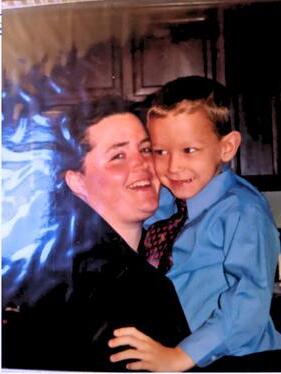
3 minute read
's Spotlight Staff
We interviewed Meri Viano, PPAL's Associate Director. Meri is a parent, grandparent, and incredible advocate for children's mental health! You will find her hosting our Statewide and Inside Track monthly meetings, as well as various workshops and groups!
What brought you to PPAL?
My children! I started at PPAL in 2004. My oldest was 9 years old, and though I knew the disability world through DDS, it was impossible to navigate the children’s mental health maze. It was eye-opening and disappointing. I felt parent-blamed. So, I started searching for parents who understood. For 7 years, I was bringing my son to services across the street from PPAL, and was never told about them! I met Pauline Curry, a trailblazing advocate, and she told me there were parents like me out there. I was able to get connected to PPAL through Pauline and those connections with other families were everything! That's really where a peer to peer program, like PPAL offers, works. Family Partners and Family Support Specialists can tell you the ins and outs of the system because they’ve been there. They understand how to help you and your kids access the right services more quickly. That can really help stabilize families and keep children out of crisis situations.


What has changed in children’s mental health since you began working at PPAL?
A lot! There was always good work being done I came in right before the Children’s Behavioral Health Initiative (CBHI) services started Parents were rallying together to talk about how to help kids that didn't fit the mold - who were unique and different, and the overall lack of children’s mental health services Parent leaders began to grow, and the development of the CBHI services exploded the Family Partner role! I remember very clearly that the first PPAL parent groups I went to had maybe 18-20 family leaders from across the state With the development of Family Partners, attendance went to almost 100 people at the meetings! Families were starting to count. While my oldest son was too acute for CBHI services (a familiar story for many parents), they definitely helped keep my middle son in the community longer.
Youth and young adult voice is another thing that has developed since I’ve been with PPAL. Neither young adult peers nor youth advocates existed. I had the opportunity to walk with the state to create a space for young adult voice and develop youth advocates. This was groundbreaking and helped bridge the gap and build a relationship between youth systems and the children they served.
Youth and young adult voice is another thing that has developed since I’ve been with PPAL. Neither young adult peers nor youth advocates existed. I had the opportunity to walk with the state to create a space for young adult voice and develop youth advocates. This was groundbreaking and helped bridge the gap and build a relationship between youth systems and the children they served.
Thankfully, there has also been an impressive shift in the mindset of the State’s Department of Youth Services. While there is still work to do, DYS is emphasizing working with court involved youth and their families rather than charging and detaining them. Adoption and implementation of the Juvenile Detention Alternatives Initiative is a huge step in the right direction. We are actively diverting children and youth from court and CRA’s ( Child Requiring Assistance) - courts are not treatment centers!
What changes in children’s mental health do you still work toward?
So many. There is still a lot of work to do. I’d really like to see the Emergency Department (ED) boarding crisis solved. This has been a problem for 20 years. I’m excited about the ED diversion programs that have been established. Some believe that ED Boarding is a short term situation– I believe that's not true. There are always going to be families who go to the ER because they don't know where else to go Unless we can get strong, easily accessible community services and well-implemented ED diversion the crisis will continue
Mental health care in all settings needs to be held to the same standard as medical care. The whole person needs to be treated, which means considering an individual’s whole health history, including past trauma, communication disabilities (such as nonverbal individuals), and intellectual disabilities.
Foster youth need our support across the state Foster youth wait longer in Emergency Departments, they often are awaiting services longer and most of all are often pushed into the courts. We need interagency involvement to improve and look at the child/youth/family.
I am excited that communities, schools, and others are now willing to acknowledge the importance of mental health. But, I feel we’ve slipped backwards with parent blame and shame. I’d like to see us get to a truly unified partnership for ALL children and what they and their families need. We need to ASK and LISTEN to parents and youth. They truly have the best solutions.
And finally, do not send our kids to detention then adult jail! It does not help. I will work as hard as I can every day to get this message out!










